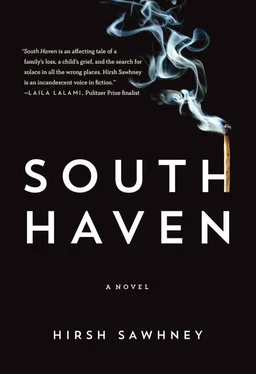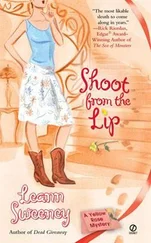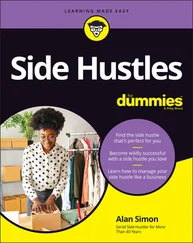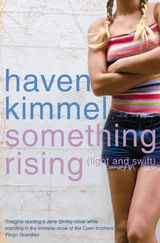“I’m late,” said Siddharth.
“Just listen a second,” said Mohan Lal.
“I’m listening.”
Mohan Lal sighed. “Son, listen up carefully. Do whatever you want in life. Become a lawyer, a banker, a doctor. But whatever you choose, don’t turn out like your old man.”
Siddharth knew what his father wanted him to say — that Mohan Lal was brilliant, the greatest father in the world. This was their old song and dance. But he left the house without uttering a word.
Arjun would know how to handle their father. He would tell him to get more sleep, to apologize to the dean and get his job back. Since Mohan Lal had quit, Siddharth had begun to worry about the family’s financial situation. If they ran out of money, he feared, they would have to move to a poorer town, or a city like New Haven. He imagined them living in a scruffy Victorian with old-fashioned radiators, or worse still, a grimy, multistoried apartment complex. He would have to go to some inner-city school where the students were crack babies or gave birth to crack babies — a school where the kids’ parents collected welfare and carjacked Yalies.
He comforted himself with the knowledge that Ms. Farber had a big empty house in which all of them could comfortably fit. But if they moved in with her, she would have won. Other times, he imagined the riches that would pour in from his father’s book. Authors like John Grisham made tons of money. Maybe once Mohan Lal got published, they would be set for life. That’s what Barry Uncle thought; Ms. Farber thought so too.
Siddharth woke up out of pure excitement on Monday morning. He got up and made sure the guest room was ready for his brother, placing back issues of Marc’s music magazines on the nightstand and a clean towel on the dresser. Recently, he had found a three-by-five picture of him and Arjun with their mother’s family, which had been taken outside of their grandfather’s Chandigarh home. Siddharth leaned it against a white bottle of aftershave that had been sitting there for as long as he could remember.
It started snowing around ten a.m., and two hours later Arjun called to say that the roads were getting dicey. He would spend the night in Pennsylvania and make it to South Haven the next afternoon. Siddharth slammed down the phone, wondering if his brother was lying. He wondered if Arjun was still under the fucking sheets with his Pakistani girlfriend.
The next morning, four or five inches of fresh powder covered the cars, and a slender crest of ice lined the telephone wires. His brother pulled into the driveway around eleven. By the time Siddharth reached the front door, Arjun was already inside, giving Ms. Farber a tight hug. Arjun said, “Rachel, I hope you don’t mind my saying so, but have you been working out?”
She smiled. “Actually, I am paying a little more attention to what I put in my body. In fact, Arjun, I’d like to have a word about your diet.”
Siddharth hadn’t realized that she and Arjun were on a first-name basis. He hated the way she said his brother’s name, as if the j were French, like in Jacques .
Marc was suddenly lumbering down the hallway. He cut in front of Siddharth and gave Arjun a halfhearted hug and a handshake. “Nice beard,” said Marc. “I bet they’re just lining up to sit next to you at the airport.”
Marc was right. Arjun’s facial hair was longer, and thicker too. He looked like a real foreigner, like one of the bad guys from Die Hard .
Arjun finally stepped toward Siddharth and hugged him, but they were interrupted by their father, who appeared in the entryway wearing nothing but a pink towel.
“That was fast,” said Mohan Lal.
“You were right. The Tappan Zee was totally empty.”
Mohan Lal embraced Arjun, then patted him on the cheek. “Son, do me one favor.”
“What?” asked Arjun.
Mohan Lal smirked. “Cut your damn beard.”
“Dad, please,” said Siddharth.
Ms. Farber gripped Mohan Lal’s naked shoulder. “Go put some clothes on, dear.” She turned to Arjun. “Hon, you must be starving.”
* * *
Arjun brought gifts for everyone. He gave Siddharth a fitted Michigan baseball cap with Jalen Rose’s number stitched into the back, and handed a Michigan hockey T-shirt to Marc, who said, “Thanks, I guess,” but then immediately put it on. Arjun got Ms. Farber an expensive-looking set of candles and their father a Michigan pen that required special cartridges. Mohan Lal put on his reading glasses to examine it, then uttered a faint thank you.
“You don’t like it?” said Arjun.
“Your father loves it,” said Ms. Farber.
Arjun then presented Mohan Lal with a stack of essays he had written that semester. As Mohan Lal thumbed through them, Siddharth saw him genuinely smile for the first time in days. Siddharth peered over his father’s shoulder and read the strange titles of these papers— Elusive Truths in the Zen Koan, Woodrow Wilson: Liberator or Racist? Not surprisingly, Arjun had gotten As on all of them.
“Proud of you, son,” said Mohan Lal, grasping Arjun’s shoulder. “Next month, when my book is done, you will lend me your expertise.”
“Uh-huh, sure,” said Arjun.
As evening fell, Arjun told them about the treacherous drive on Interstate 80, and how the rural people of Tennessee were poor but inspiring. Ms. Farber and Mohan Lal were hanging on his every word. Siddharth thought about how they barely even listened to what he had to say anymore, but he was ready to drop that for today. It felt good to have Arjun home, and that’s all he wanted to think about.
Ms. Farber made paneer that night, using tofu instead of actual cheese. Mohan Lal and Arjun were complimentary, but Siddharth stayed quiet. Marc said she should stick to pancakes and leave the curry to the Indians. She quickly changed the subject, bringing up the Honda Civic Arjun had driven home from Michigan. “It’s very generous of your friend to lend out his car like that. It must be a thousand miles here and back.”
“Fourteen hundred, actually,” said Arjun. “But we don’t really look at things like that.”
“Like what?” Ms. Farber scrunched up her nose.
“With real friends, it’s not about quantifying things,” said Arjun. “It’s not about miles or money.”
Mohan Lal said that next year, Arjun wouldn’t have to borrow anybody else’s car. He could buy him his own vehicle.
“That’s a nice idea,” replied Arjun, “but it’s not exactly an ideal time for frivolous expenditures.”
Mohan Lal coughed midbite, then took a gulp of water.
Ms. Farber rubbed Mohan Lal’s back. “Arjun, this time next year, your father’s book’ll be out. It’ll be a whole new ball game.”
“If you say so,” said Arjun, giving her a tight-lipped smile.
Ms. Farber told the boys to clear the table and then brought out a lemon meringue pie that one of her clients had given her. She placed it in front of Mohan Lal, who served each person a slice, giving himself a particularly wide one. Siddharth struggled to eat his pie, but Marc quickly finished his and took seconds.
“My question is,” said Marc, “who’s gonna wanna read a book about India? If you haven’t noticed, Americans don’t really give a crap about much. They really only care about themselves.”
“Marc, I’ve had enough for today,” said Ms. Farber.
“Okay, lemme grab my muzzle.”
She pulled his pie away and placed it on the kitchen counter. “Arjun, if you had a car, you’d be able to get away from campus — do a little grocery shopping on weekends.”
“Honestly,” said Arjun, “I’d like to do without a car for as long as possible.”
Ms. Farber dabbed her mouth with a napkin. “Oh, and why’s that?”
Читать дальше












